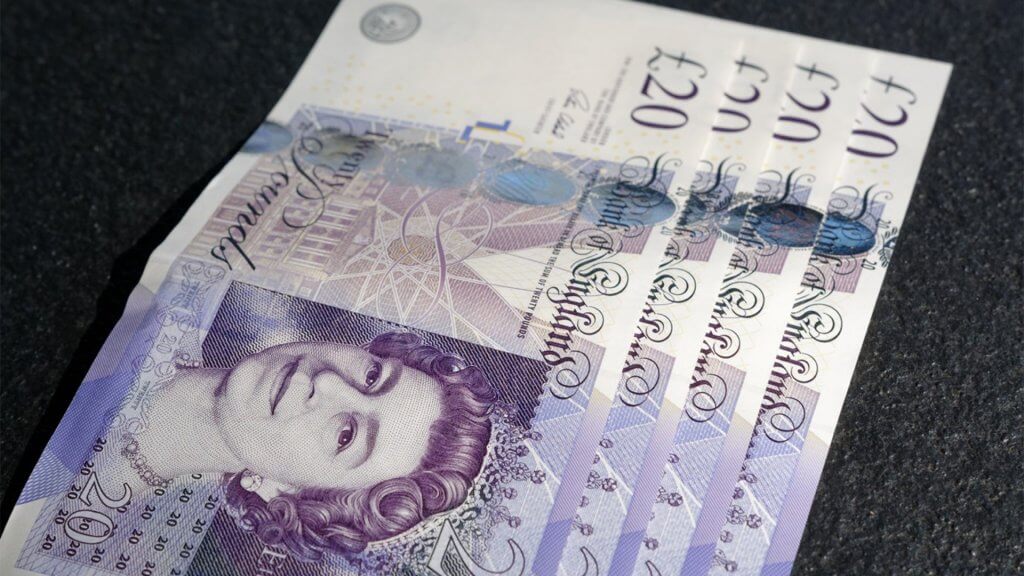Whilst they’re hardly a new financial product, overdrafts and line of credits are an increasingly common form of alternative borrowing. Perhaps because of the stringent requirements to take out a bank loan for small businesses, dipping into some credit is seemingly more accessible than organizing a lengthy business bank loan.
An overdraft and line of credit are often used interchangeably, though we should be clear in making a distinction between them. Generally, they both are a means of agreeing to an extra amount of funds that are attached to a business account which can be accessed when your balance goes below zero.
Generally, a business overdraft’s definition is that it’s more of a safety net beyond a line of credit. It’s structured so that payments can be made in an emergency situation where your account is below zero. Even if you have a line of credit, you could use up the credit and then go below zero. The bank covers you when you’re overdrawn, but you may be charged a penalty if you go past your limit, and sometimes (but not always) interest.
A line of credit is often defined as similar, but a more formal and intentional approach to dipping into credit. These are often offered by alternative lenders, not just banks, and can be secured or unsecured with the former generally offering better interest and larger limits. Business lines of credits also have more available credit, running up to a million pounds in some cases – and are considered to be a different use case than overdrafts.
For example, the line of credit may state you can borrow up to $100,000 and with x% of interest. Small businesses make great use of this to patch over cash flow issues, as they rarely know how much credit they will need. Thus, they only borrow what’s necessary and avoid paying interest on a surplus, unused amount of credit. So, even if the interest on a line of credit is 3 times higher than a bank loan, using only $30,000 of the credit will be cheaper than the interest costs of taking out a $100,000 bank loan.
Opening a line of credit before you need it – does it cost?
Generally, a business overdraft will have either an annual fee or an establishment fee – whilst some have both. This could run anywhere from a few hundred pounds to a few thousand. This is seen as a form of insurance – paying for the luxury of going below zero without a penalty and to make sure emergency liabilities can be paid.
Business lines of credit, on the other hand, generally have small activation fees. Some do have monthly fees that add up to a similar amount as the business overdraft annual fee, though. This fee is generally to cover the reservation of funds – the lender is putting aside a cash reserve for the small business in case they need it. Whilst they may not literally be keeping this cash aside and unused, there is a regulation to ensure this cash is guaranteed to be accessible, hence the fee.
How does this compare to credit cards?
To make matters more confusing, business credit cards are somewhat similar to lines of credit. Firstly, we can distinguish them as being literal cards, so they make accessing the agreed credit very easy. You can simply walk into a store and buy some office equipment on the card and access your credit in a very direct way. Though, this becomes the only way to access the credit, by making a purchase. You can’t simply dip into the credit by transferring money, for example.
Furthermore, there are often daily or monthly limits to your credit card. With lines of credit, small businesses can access the entire credit limit in one go unlike credit cards, which are a bit more cautious and limiting.
However, the upside is that business credit cards often have slightly lower interest rates than lines of credit (though not always) and a credit card reward system. They’re also common for building up a better credit score.
Comparing interest rates
Because of the freedom and sheer size of the line of credits, as well as being unsecured, they come with the most risk as a lender. In the UK, interest rates for a line of credit may range between 15% and 30%.
Business overdrafts, with their collateral, and potential for penalties, have interest rates ranging from 5% to 12.5%. Business credit cards are somewhere in-between, ranging from 6% to 20%.
Which one is best?
Of course, the answer depends. However, we can rule out overdrafts pretty quickly in the circumstance that the small business doesn’t want (or can’t) put up collateral. Furthermore, they’re more easily terminated by the lender than lines of credit, so they’re less reliable in an emergency. They should be considered, though, if cost is the single biggest factor, as they can often offer zero interest. Furthermore, they should be considered if the borrower thinks they may exceed their line of credit, as an overdraft will have that covered.
Credit cards, whilst sometimes more affordable than lines of credit, are a bit more restrictive. A credit card will only allow you to make purchases to then pay back, as opposed to accessing a large amount of credit in an instant. This is perfectly fine if you’re looking to buy equipment or supplies and like the idea of buy-now-pay-later. Of course, you can earn credit card rewards too, and if you’re great at repaying on time, you may be able to keep costs low.
Lines of credit would be the better option for businesses looking to access a large pool of credit for expansion, wages, SaaS, and to meet other liabilities. You only pay interest on what you use, and there is a lot of freedom there. This may also be your best shot at a large amount of unsecured credit too, assuming your credit score is good enough.
As far as cost goes, they all overlap. Whilst credit cards can often be cheaper than lines of credit, it isn’t always the case. Though, be sure to factor in activation and annual fees, as these will likely be cheaper with credit cards.
Finally, they can often be used to complement each other. A line of credit may be ideal for one scenario, but if the small business is accepted for an unsecured 0% credit card, it may make sense to pay off the line of credit using it. And of course, an overdraft can be complimentary in the event that you exceed your agreed credit.








